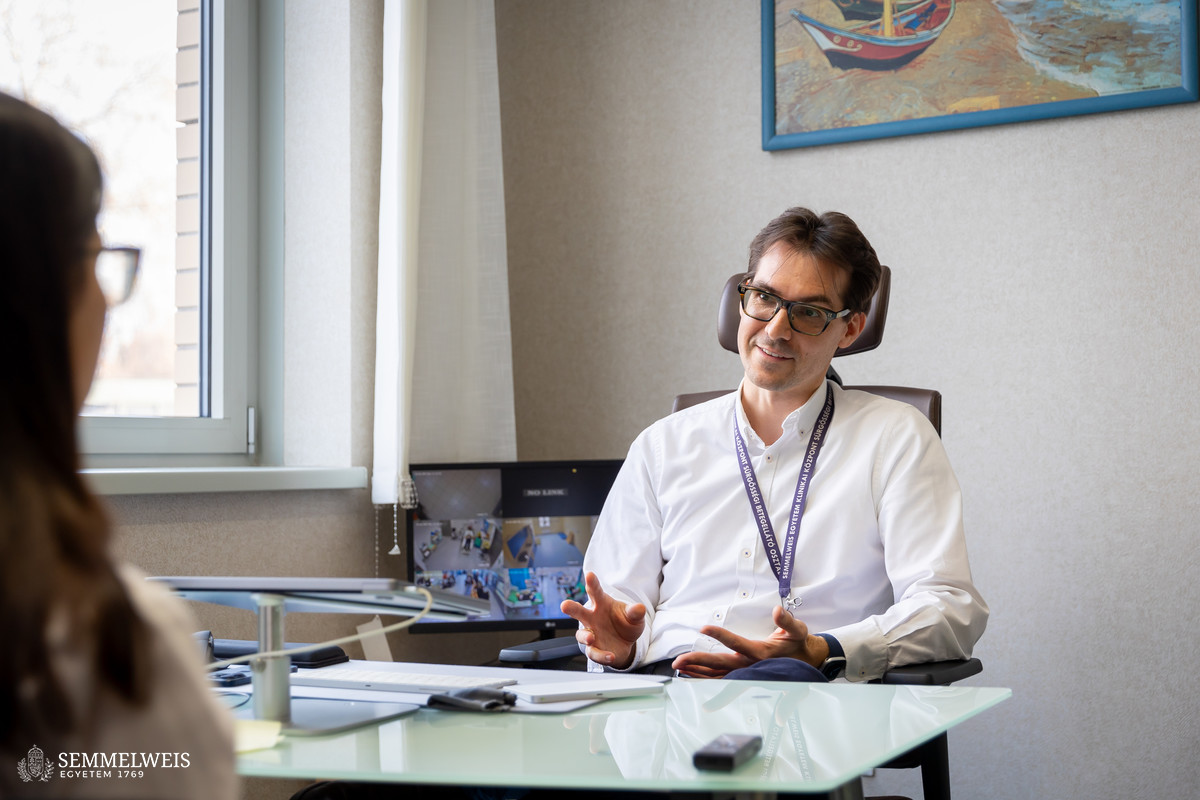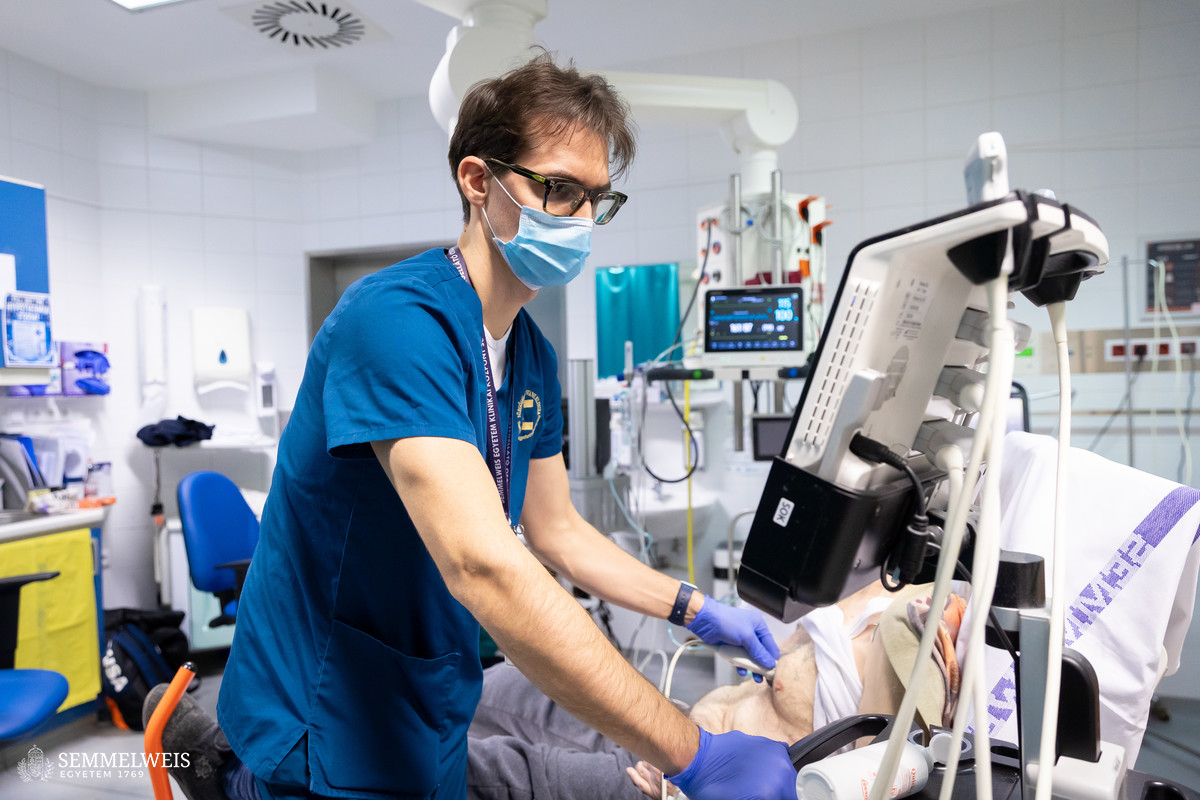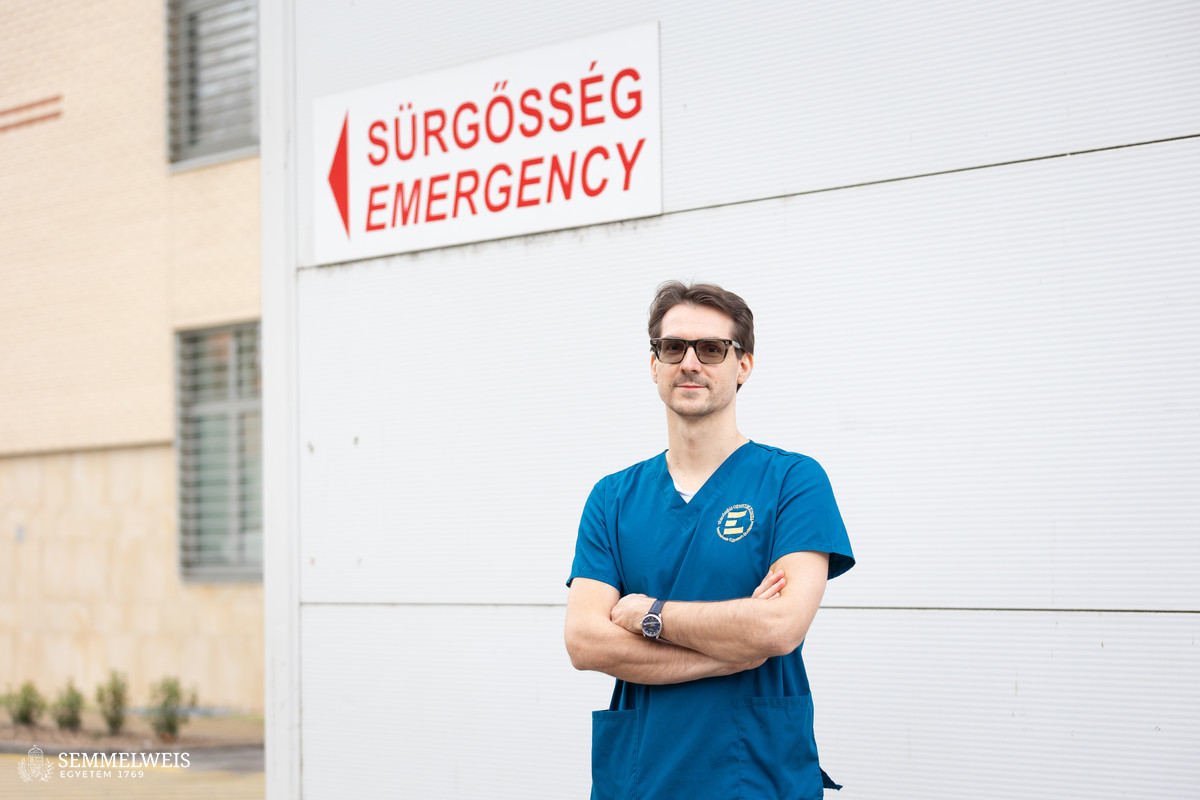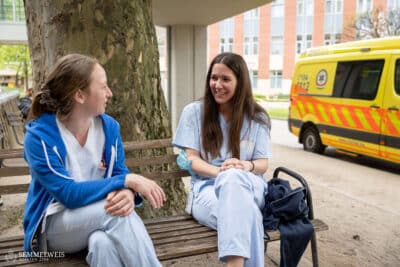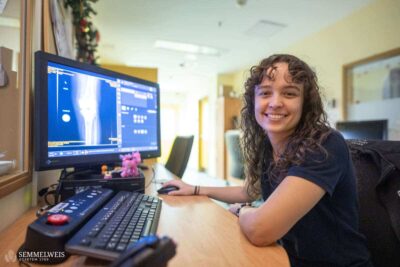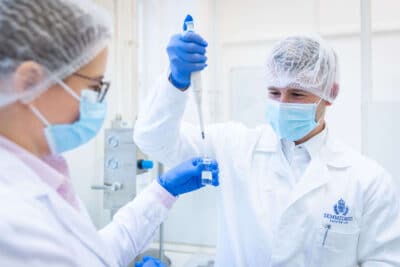In 2016, the Emergency Room Department opened in the Korányi Central Patient Care Building, which has continued to operate as the Department of Emergency Medicine from 2021 following the expansion of its profile. The new department is responsible for admitting (i.e. operating a “one-stop-shop” system for the wards of other departments), triaging, stabilizing, providing a differential diagnosis and often taking immediate care of outpatients seeking emergency treatment as well as patients brought to the hospital by ambulance, which involves multidisciplinary cooperation.
Associate Professor Dr. Csaba Varga, who had been Head of Department since 2021, stepped down in December 2024, and Associate Professor Dr. Bánk Fenyves took over the post in January this year. Dr. Bánk Fenyves stressed that he had been able to take over a dynamically developing unit from his predecessor, so that his primary task was to keep the Department of Emergency Medicine on this “upward trajectory.” In practice, this means, among other things, maintaining a high number of allied health professionals and further expanding the team of specialists, the head of department said. The average daily patient turnover at the department in 2024 was 130 (often with fluctuations of over 150), which represents a steady increase (20 percent from January to July 2024).
Since 2021, the number of staff in the department has quadrupled, mainly due to staffing upgrades for allied health professionals. Emergency care is an attractive field for many young people because of the wide variety of patients and illnesses they can encounter, Dr. Bánk Fenyves pointed out, speaking of his experience. However, the high patient turnover, the constant and often time-critical need for care, and the alternation of 12-hour day and night shifts can be stressful. This is counterbalanced, he said, by a good working atmosphere, one of the keys to which is teamwork: In emergency care, team spirit is essential, there is no such hierarchical difference between a doctor in charge of a shift and a patient transport or nursing assistant as there is in a traditional working environment. Among his long-term plans, he mentioned the implementation of an emergency career model in the department, in which – following Western examples – the working time of specialists is divided in such a way that, in addition to primary patient care, they are given dedicated, protected time to work on individual profiles such as education and research.
At the Department of Emergency Medicine, we are also trying to strengthen research activities, which used to be more sporadic or linked to a specific project, the head of department noted. The reason for this is that emergency medicine itself is a very young specialty, so a low number of research projects is a natural consequence of its development. The specialty has so far focused mainly on developing clinical practice and education, but the transformation into clinical and educational departments has created new opportunities, for example, for launching PhD training and creating a dedicated research workshop. This is why it has become important to strengthen the research profile, which Dr. Bánk Fenyves had been working on with great commitment in recent years as head of research, even before his appointment as head of department.
At the Department of Emergency Medicine, a number of research projects are currently underway, both sponsored and self-initiated, said Dr. Bánk Fenyves. A team of research coordinators and study nurses has already been established to conduct sponsored clinical trials initiated by external partners (e.g. pharmaceutical companies). In addition, self-initiated research directly related to emergency care is being conducted. One priority area is acute stroke care, which is being researched in collaboration with neurologists. Another important area of research is the management of gastrointestinal bleeding – a major challenge in emergency care, especially in patients on blood thinners – for stabilization and blood coagulation management, which are essential before endoscopic surgery. In this and other hemorrhagic pathologies, viscoelastometry, i.e. the use of dynamic blood coagulation testing in emergency care that can be performed at the bedside, is currently a hot topic. This project has already resulted in an essay in the rector’s thesis competition, several conference presentations, and the first study on the subject is currently in the process of being published. In addition, sepsis management, the early detection and treatment of serious infections, is another area of particular interest and with vibrant research activity.
Dr. Bánk Fenyves graduated from the Faculty of Medicine of Semmelweis University in 2015 and passed his specialized exam in emergency medicine in 2022. In addition to Budapest, he completed clinical training in the United Kingdom, the United States, and Japan in the fields of emergency medicine, cardiology, and neurology. He started his residency training in the then newly established Emergency Room Department and in parallel completed his PhD studies under the supervision of Dr. Péter Csermely. During this time, he participated in a year-long research trip to an animal research facility in Basel, Switzerland, where they studied the molecular biology and pharmacological modulation of long-term memory. Then, while conducting research at Harvard University in 2020-2021, he turned to clinical research as he joined the Emergency Department at Massachusetts General Hospital, where he was involved in a COVID-19 study.
Dr. Bánk Fenyves is the first head of the department to have passed his first specialized exam in oxyology and emergency care, thanks to the relatively young specialty of emergency medicine. As he said, being a leader is often a lonely but not necessarily a one-man job: Based partly on his experience abroad, he considers important the modern management approach that advocates delegating different areas and tasks to competent colleagues. He added that under Dr. Csaba Varga’s leadership, the department also functioned in such a way that the various areas had people in charge with a fairly high degree of autonomy, and he would like to continue this practice.
Eszter Keresztes
Translation: Dr. Balázs Csizmadia
Photos by Boglárka Zellei – Semmelweis University
